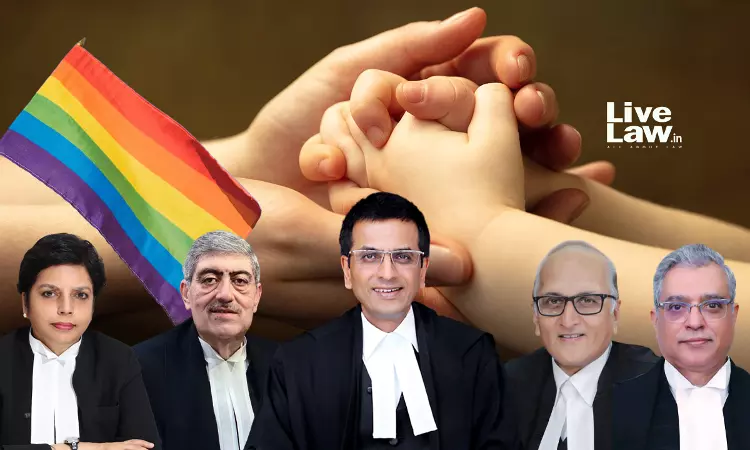Marriage Equality Case | No Right For Queer Couples To Adopt Children, Supreme Court Holds By 3:2 Majority
Padmakshi Sharma
17 Oct 2023 2:37 PM IST

Next Story
17 Oct 2023 2:37 PM IST
The Supreme Court today refused to grant legal recognition for queer marriages in India. The Constitution bench has pronounced four judgements– written by CJI DY Chandrachud, Justice SK Kaul, Justice Ravindra Bhat and Justice PS Narasimha respectively, with Justice Hima Kohli concurring with the view of Justice Bhat. Along with this, the Supreme Court also declined the right of adoption...
